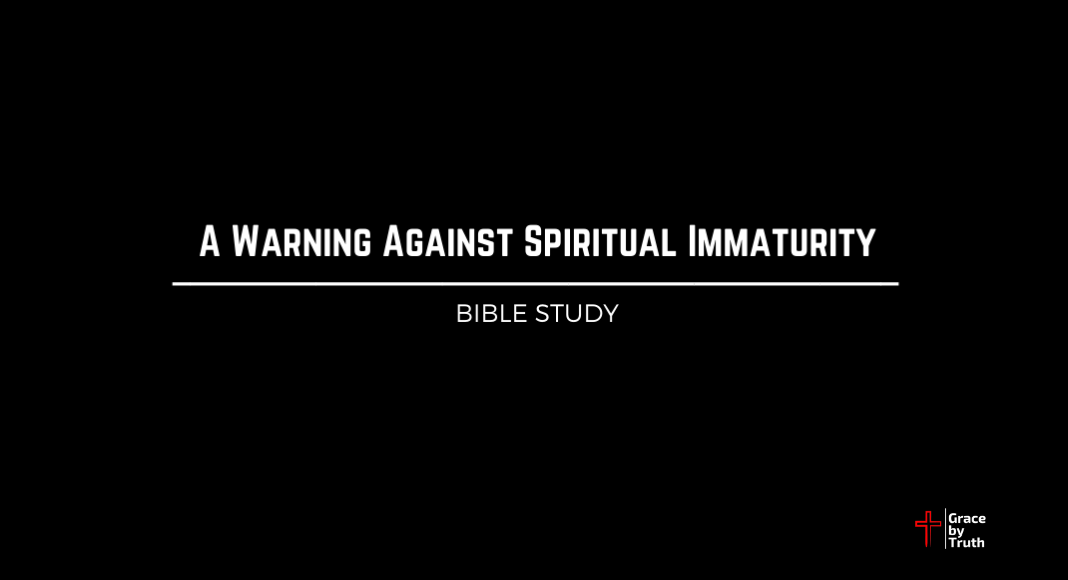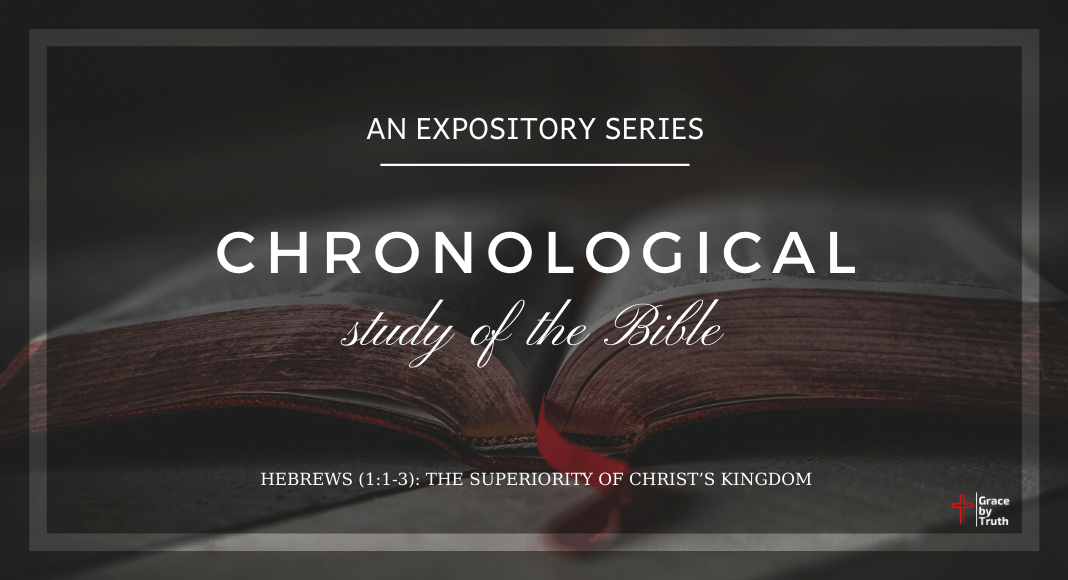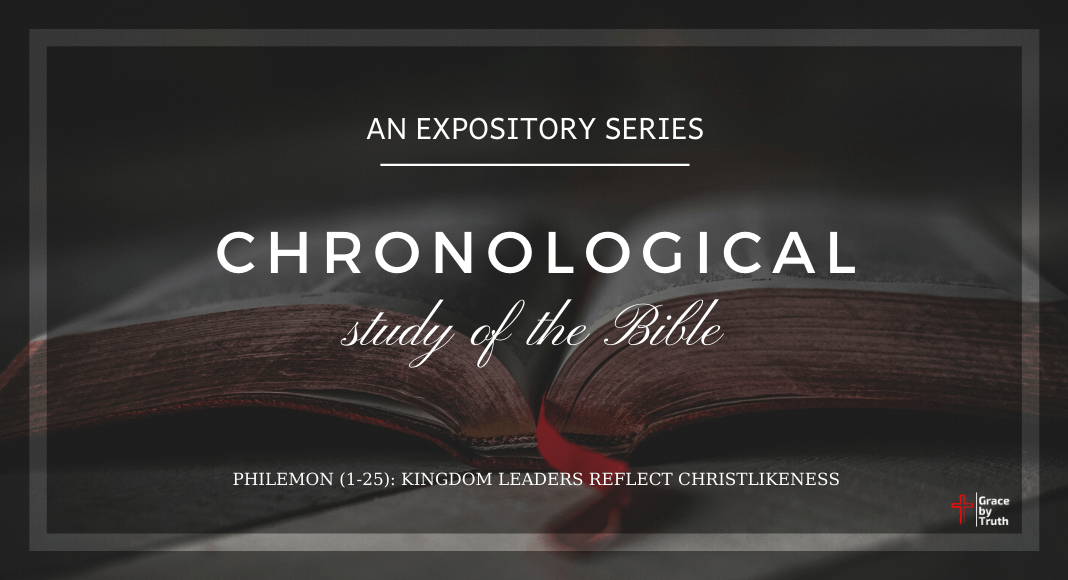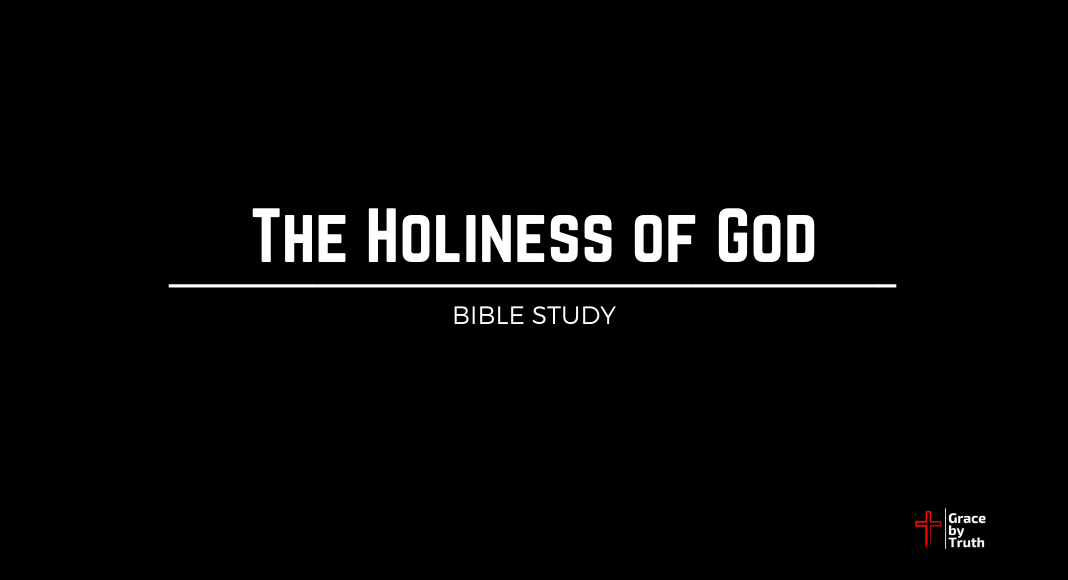A Warning Against Spiritual Immaturity – Hebrews 5:11-6:12
A Review of Man- 2 Types
I. Man in Adam.
A. The Natural Man.
a. Spiritually dead. (Eph. 2:1)
b. Under God’s condemnation. (Romans 5:16-18)
c. Has a sinful nature. (Eph. 2:1, Ps. 51:5 )
d. Does not seek after God. (Rom. 3:11)
e. Not able to understand spiritual truth. (Rom. 3:11; 8:7; 1 Cor. 2:14)
f. Lives for selfish interest. (Eph. 4: 17-19)
1. Man rejects God and His revelation in the way that he thinks and reasons, with the result that he lives his life as a law unto himself. At the foundation of all of his thinking, he says in his heart there is no God. (Gen. 3:6; Psalms 14:1, 53:1; Romans 1:18-23)
2. Man is now totally self-serving. He now believes that his self worth is determined by the responses of other people to him. He is desperately fearful of the rejection of other people and tries to manipulate other people to respond to him in a way that will gratify his own ego. In short, he believes other people’s positive responses to him determine his own self worth and value. (see Gen. 3:8; Matt. 6:1,2,5,16)
3. Man hides his imperfections to avoid rejection. He will seldom let down his guard to let other people see him as he actually is. He always wants to present himself to others only for purposes that will ultimately be of some benefit to him. (Gen. 3:8,10)
4. Man blames others when he is rejected or lacks a sense of fulfillment in his life. He sees himself as either the beneficiary or victim of those around him. Others are supposed to make him feel good about himself, and when he doesn’t feel good about himself, others are the reason. (Gen. 3:12,13)
II. Man in Christ.
A. In Christ He is.
a. Made alive spiritually. (Eph. 2:5)
b. Is a new creature not the old person with some a new additions. (2 Cor. 2:15)
c. Under no condemnation for the penalty of sin. (Rom. 5: 1-11; 8:1)
d. Has the ability to live his life with an orientation to love and please God. (Matt. 5:16 ; Rom.6:12-14, 12:1-2 Col. 2:10;)
III. How does sin affect the Man in Christ?
A. Loss of fellowship- Sin brings an interruption of fellowship between the Christian and God. (1 John 1:3, 6-7)
B. It interrupts or daily walk- Sin causes the believer to walk in darkness. (1 John 1:6; 2:10)
IV. Penalties for the persistent sinning Christian.
A. Punishment – God’s punishment for the believer is always corrective rather than punitive. Hebrews 6 tells us that God may confirm the immature believer in that state perpetually.
B. Excommunication – Being band from the local church may become necessary. (1Cor. 5; Matt. 18:17)
C. Physical illness or death – in some cases God allows physical infirmaries or death to be a form of punishment. (1 Cor. 11:30; 1 John 5:16)
V. 3 Preventives for Sin in the Christian’s Life.
A. Allow yourself to be filled with the Spirit. (Eph. 5:18; Gal. 5:16-24).
B. Study the Word of God. You can’t practice what you don’t know. (Psalm 119:11)
C. Become active in Christian service. Using our talents, knowledge, and resources that we have now to serve the kingdom will keep us from engaging our energies in to sin. (Rev. 12:11).
Press on to Maturity
VI. Regressing to immaturity results in. (5:11-14)
A. Lack of spiritual discernment. (v.11)
B. Ignorance of the Word. (v.12)
1. Milk (Basic Biblical truth)
2. Meat (Complex Theological Doctrine)
C. Milk is for the immature. (v.13)
1. Immaturity results in fleshly living.
D. Meat is for the mature. (v.14)
1. Maturity results in spirit filled living. (1 Cor.2:14-3:4; Eph.4:11-15)
VII. Press on to maturity. (6:1-12)
A. Move beyond the basics. (v.1-2)
- Sacrificial system.
- Cleansing rites.
- Laying hands on offerings.
- Resurrection/ Judgement.
VIII. The Warning. (v.3-8)
A. He says they have:
- been enlightened.
- tasted the heavenly gift.
- become partakers of the Holy Spirit.
- Tasted the good Word of God
______________________________
= They still refused to grow up in the faith
B. The result is repentance is now impossible for them.
C. Illustration of the warning.
IX. Therefore press on to your inheritance. (v.9-12)
What is Maturity?
- The knowledge of a doctrine does not determine immaturity or maturity. Ones ability to go into the depth of a particular doctrine determines whether it is milk or meat.
- Maturity is related to the use of the Word and not the knowledge of the Word.
- Maturity presupposes knowledge of the Word but knowledge of the Word in itself is not maturity.
- The inability to use the Word in handling the issues of life marks a person as immature.
What Have We Learned?
As a believer in Christ, spiritual maturity is the goal of the Christian life. This goal is obtained through living out the precepts of the Word of God in life’s everyday experiences. The more we do it the better we get. Therefore, press on towards the goal for the prize of the upward call of God in Christ Jesus.
ABOUT
Grace by Truth is known for delivering the precise and deep study of biblical truth in service to each other and the church.
CONTACT
CURRENT STUDY
MORE BIBLE STUDY OUTLINES
The Kind of Church God Blesses
The Kind of Church God Blesses - (1 Cor. 2:1-9) I. The Right Message (v.1-2) A. The Church’s primary message must be Jesus Christ and the Cross. -“A sermon without Christ, it is an awful, a horrible thing. It is an empty well; it is a cloud without rain; it is a tree...
Principles of New Testament Giving
Principles of New Testament Giving I. How do we determine the rules for giving or tithing? A. Dispensation (oikonomos)- is translated economy, stewardship, house rule or stewardship and it is used 29 times in the NT. (Eph. 1:10, 3:2, 9) B. There are seven...
The Holiness of God
The Holiness of God Holy - God is independently, infinitely, immutably, Holy. The sum of all moral excellence is found in Him. He is absolute purity, unsullied even by the shadow of sin. What Does it Mean to Be “Holy”? I. Old Testament - In the O.T. the root...







